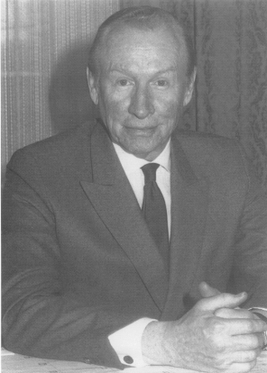Henry W. Sawyer III (1918–1999) was a Philadelphia-based civil liberties attorney who successfully argued two of the most important religious liberty cases before the Supreme Court: Abington School District v. Schempp (1963) and Lemon v. Kurtzman (1971).
Sawyer argued important First Amendment cases before Supreme Court
In Schemp, the Court ruled that a Pennsylvania school district’s practice of teacher-led Bible readings and prayers violated the Establishment Clause. In Lemon the Court invalidated state laws in Pennsylvania and Rhode Island that supplemented teachers’ salaries in parochial schools. It was in the latter case that the Court established the three-part Lemon test for evaluation of Establishment Clause cases.
Sawyer volunteered on behalf of ACLU
Born in Philadelphia, Sawyer obtained both his undergraduate and law degrees from the University of Pennsylvania. After serving in the Navy during World War II, Sawyer entered private practice at the law firm Drinker Biddle and Reath in 1948. The Drinker firm allowed Sawyer to take cases on a volunteer basis on behalf of the American Civil Liberties Union. In was in this capacity that Sawyer represented several individuals called before the House Un-American Activities Committee in the 1950s and later served as counsel in the Schempp and Lemon cases. Sawyer retired from Drinker Biddle in 1988.
David L. Hudson, Jr. is a law professor at Belmont who publishes widely on First Amendment topics. He is the author of a 12-lecture audio course on the First Amendment entitled Freedom of Speech: Understanding the First Amendment (Now You Know Media, 2018). He also is the author of many First Amendment books, including The First Amendment: Freedom of Speech (Thomson Reuters, 2012) and Freedom of Speech: Documents Decoded (ABC-CLIO, 2017). This article was originally published in 2009.

